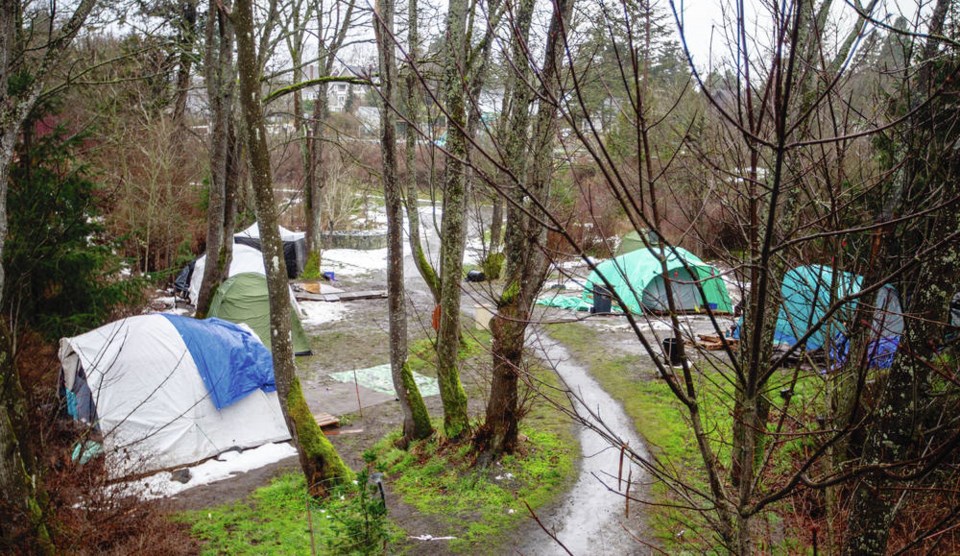B.C. is not only aiming to have everyone now sheltering in Victoria parks indoors by the end of March but is planning to have extra beds on hand, says David Eby, B.C. attorney general and housing minister.
“We are over-shooting the number of spaces that we think we need,” he said Tuesday during a video-conference meeting hosted by the Greater Victoria Chamber of Commerce.
Plans call for opening enough spaces for everyone already counted as not having a home. Eby expects that when others, who did not participate in past counts, hear there is a chance to go indoors they may ask for a place as well.
“Whether it is Vancouver or Victoria we’re preparing for that with additional spaces,” Eby said.
Communities are suddenly seeing larger numbers of people who are without homes, he said. It may seem that there is a sudden increase in people with mental health issues and that police are being called in more.
The backstory is that wrap-around support services have been strained by the arrival of COVID-19, Eby said. Supports were in place to help keep people in housing and to find housing for those who need it. This can include ensuring someone gets medication they need or providing assistance negotiating with a landlord.
But those services have been challenged because they rely on face-to-face contact in a time of social distancing and not everyone has the ability to be out and about during the pandemic.
Additionally, when it comes to trying to find a space for someone who is not housed, places such as emergency shelters have typically cut their capacity in half because of the virus, he said.
That has led to people with social issues, who were often been hidden from view, appearing on streets and moving into encampments in parks.
These encampments are “profoundly unsafe,” Eby said, citing fires, overdose deaths and vulnerable people being exploited by predators.
The province has been working with officials in Victoria and Vancouver, he said. Spaces for those without homes will be dignified, provide meals, and will offer supports to create an environment to encourage people to stay.
A key part of the plan is to see people transition into permanent housing, Eby said.
When people leave encampments for these spaces, assessments will be carried out to learn more about them and to find the best way to support them to remain housed. Some have already been assessed.
Individual situations can run from someone who was not able to come up with a damage deposit for a rental unit to others with profound mental health and addiction issues.
As vaccinations increase and people start to be social again and services reopen, Eby said, “my hope is that you will see a very dramatic improvement.”
Of the people who were moved indoors in Victoria and Vancouver last year, between 85 and 90 per cent are remaining housed, he said. Progress is being made to house people.
A large number of people were moved into the Burnside-Gorge area and into a Travelodge without assessments, resulting in policing issues and concerns from neighbours. That approach will not be repeated, Eby said. People will undergo proper assessments and buildings will have a mix of tenants.
It is important that each part of the capital regional recognizes its role in providing supportive housing to those who are homeless or on the verge of being without shelter, he said.
Earlier this month the province announced that 28 of 100 publicly funded treatment and recovery beds for adults with drug and alcohol addictions set to open in the province will be on Vancouver Island.
cjwilson@timescolonist.com



